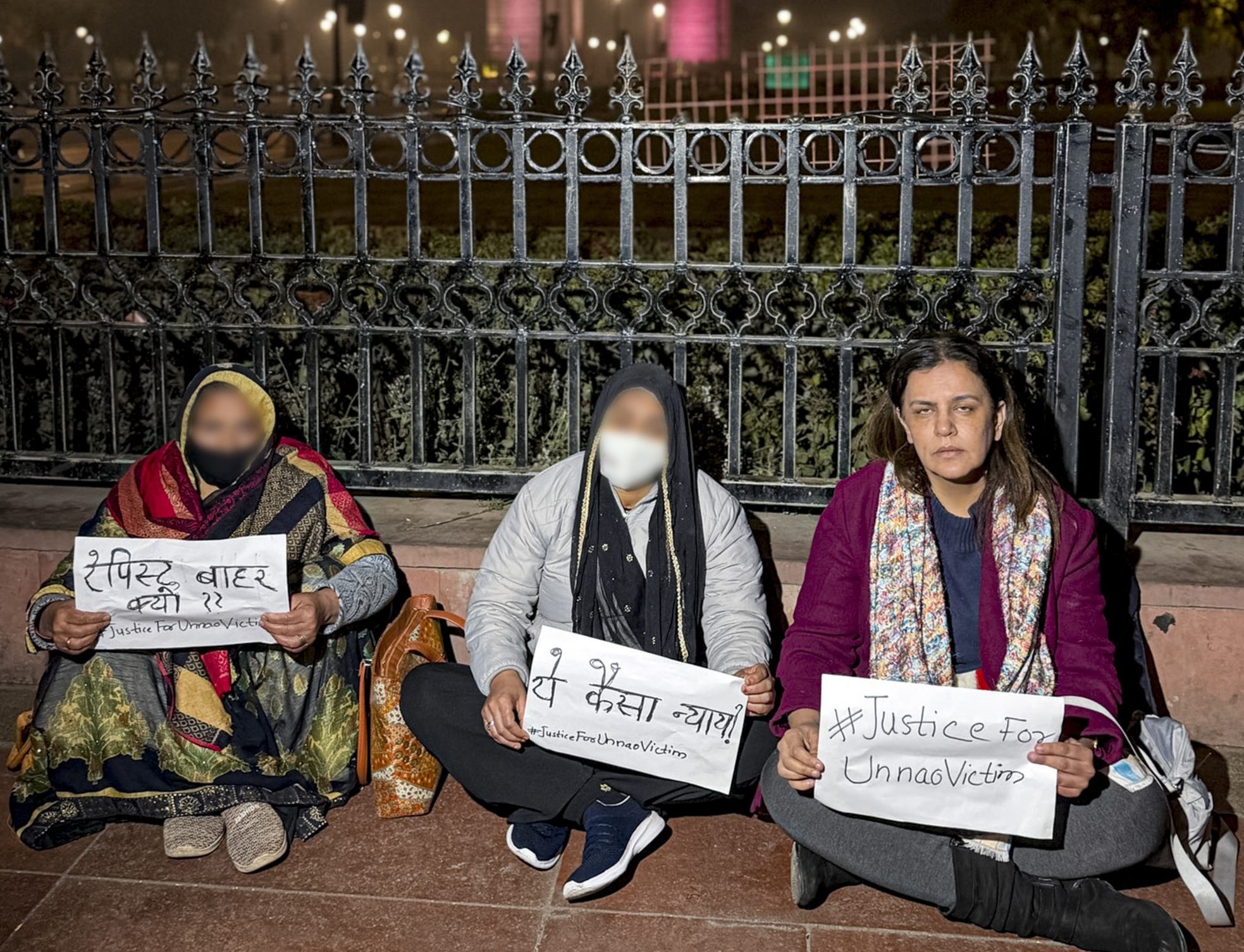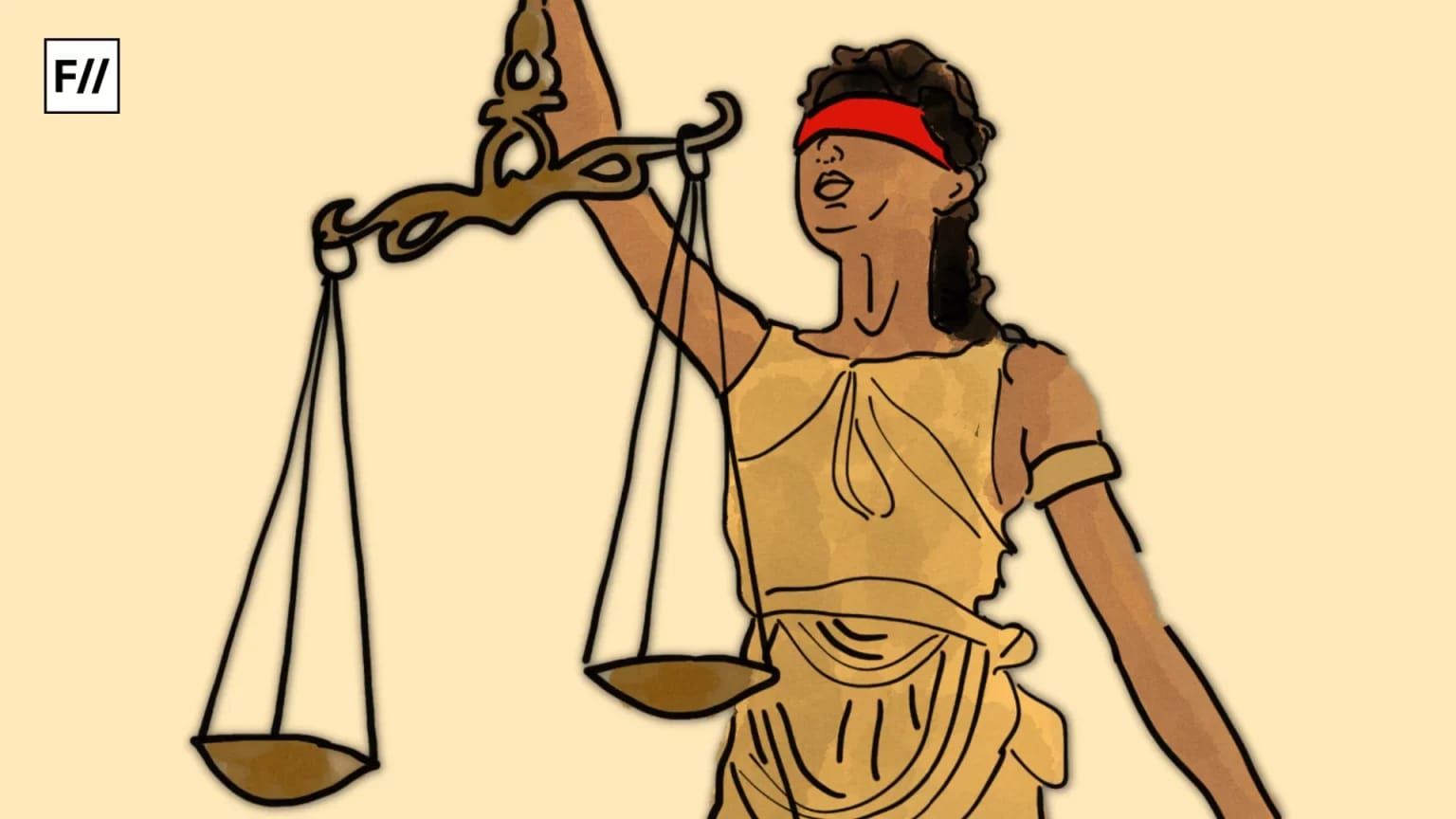A lot of people enjoy watching the role play porn, i.e., a teacher manipulating a student to have sex, on the pretext of degree, or a police officer promising prison release to a female inmate, which explains their popularity. This only proves how the world has normalised sextortion. Until now, we weren’t even aware that what is being glorified by such porn is yet another form of sexual exploitation. Here’s a little reality check: Philippine doctor made a young nursing graduate submit to sexual advances in order to obtain employment with a Family-Planning Research Project. One more: Tanzanian Police Officer promised a female inmate to be released if she engaged in sex with him, and the incidents go on.
Jammu & Kashmir High Court, which is currently headed by Justice Geeta Mittal, becomes the first state to criminalise sextortion. The judgment came after the conviction of a man, who used to provide helping staff to various hospitals, which included female workers. He then used to ask them of sexual favours, under the garb of employment, as these females hailed from poor and humble backgrounds. Not only, did he exploit them physically, but also monetarily. In this piece, we shall try to understand the various facets related to sextortion – roadblocks and road ahead.

“Power tends to corrupt, and absolute power corrupts absolutely. Great men are almost always bad men”, says John Emerich Edward Dalberg Acton. The proverb conveys the opinion that, as a person’s power increases, their moral sense diminishes. It goes without saying that men, in power, have been abusing their power, almost entirely. Be it government officials, police officers, teachers or employers, if they have a power to assent to or refuse to anything that holds importance, they’d almost always make sure that they make the subscribers vulnerable – monetarily, physically, or psychologically. The International Association of Women Judges define sextortion as an institutionalised system of blatant abuse of power, where the corrupt practices take the form of sexual demands. That is to say, that it is that form of corruption in which sex, rather than money, is the currency of the bribe. It can take various forms depending upon the age, background, societal and financial position of the victim.
Also read: #MeToo Exposes The Dark And Ugly Side Of Powerful Men In The Film Industry.
Etymologically, the term sextortion comprises of two words, sex and extortion, and if these two terms are combined, they would be an offence, neither under anti-corruption laws, due to non availability of financial element nor under anti- harassment laws, because trading of power for sexual favours is often dismissed as consensual.
Due to absence of physical force and lack of evidence, it gives an idea of consensual sex to people.
The element of ‘abuse of power’ has to be understood in a sense that it is different from exercising one’s authority, abuse happens when the power entrusted upon the official, is used for his personal benefits. In this case, obtaining a sexual favor implies an exchange or quid pro quo. Whether explicit or implicit, it is the ‘this-for-that’exchange – a sexual favor in exchange for some benefit that the person in authority is empowered to withhold or confer – that is central to the corruption component of sextortion. The imbalance of power allows the perpetrator to exert coercive pressure on the victim to accede to sexual demands, rather than using physical force.
Accepting sextortion as a separate offence, for a country like ours, that lacks gender sensitivity, might be a challenge, which is why I shall do a little explanation here, as to why it is necessary to address this crime, in the current legal regime. Firstly, due to absence of physical force and lack of evidence, it gives an idea of consensual sex to people, due to sheer disregard of psychological pressure.
The victims should be encouraged to file cases and once they come forward, they should receive requisite support and the report should be handled properly at every step of the way.
Secondly, because currently there is no law that deals with the topic. Statutory rape laws can only be used to prosecute teachers who trade sex for grades with underage minors, and thus leave a huge arena untouched. The Prevention of Sexual Harassment at Workplace Act, 2013 touches upon the quid pro quo arrangement, but only the one that she might face, during the course of her employment.
The effectiveness of which is a cloud of uncertainty. These are situations, where being a woman itself places her in an unequal field, without any bargaining power over the choices, so far as her entitlement is concerned. Most importantly, it’s a never ending vicious cycle, where most women would minimise such experiences or keep silent about it.
Also read: “She Was Very Outgoing” – And Other Tactics To Silence Sexual Harassment Complaints”
It cannot be denied that prescription of a statute rendering sextortion as penal offences would go a long way in achieving the constitutional goal of equality, so far as girls and women are concerned. Making a law is only the beginning. The law making agencies will have to extend their authority, beyond just making the laws. They will have to create awareness about it, so that we can overcome the barriers that stand in the way of making the criminality a success.
For starters, people should be made aware that sextortion is an unlawful act. The victims should be encouraged to file cases and once they come forward, they should receive requisite support and the report should be handled properly at every step of the way. Text messaging, recorded calls, etc. should be taken into consideration, because in most of the cases, the perpetrator and the victim are the only witnesses. There’s a need for a revolution in the way we react to the victims of sexual assault. The stigmatization and the victim blaming philosophy compound the difficulty of coming forward.
Most importantly, we need to break the silence that lets sextortion to continue unchallenged. I’ve a certain sense of optimism, when I see progressive judges like Geeta Mittal, providing for various problems that women have been facing for a long time. I can see the horizons changing.
About the author(s)
Racheeta Chawla is a law student aiming to build an inclusive society.




